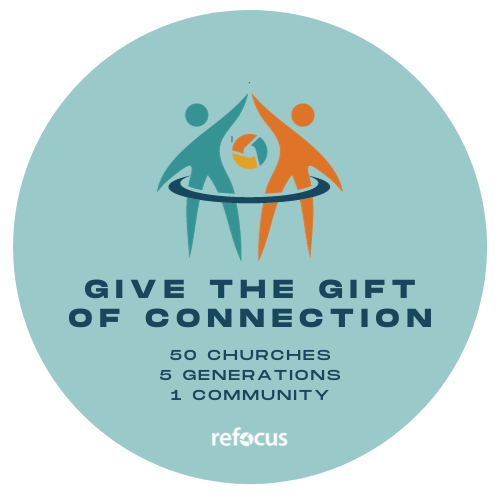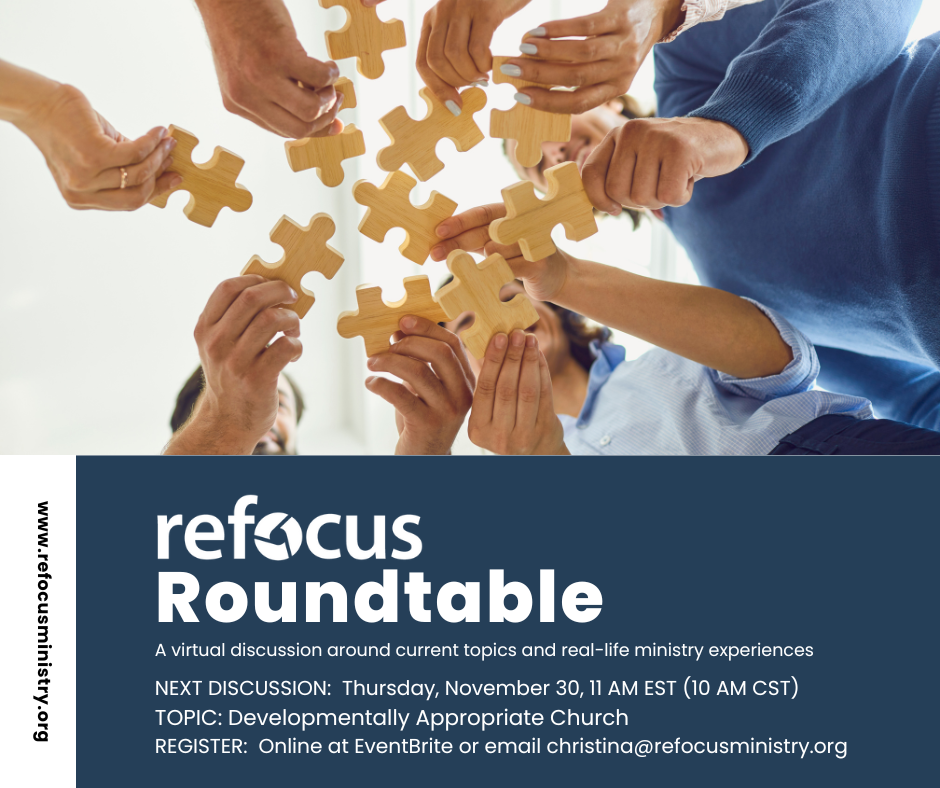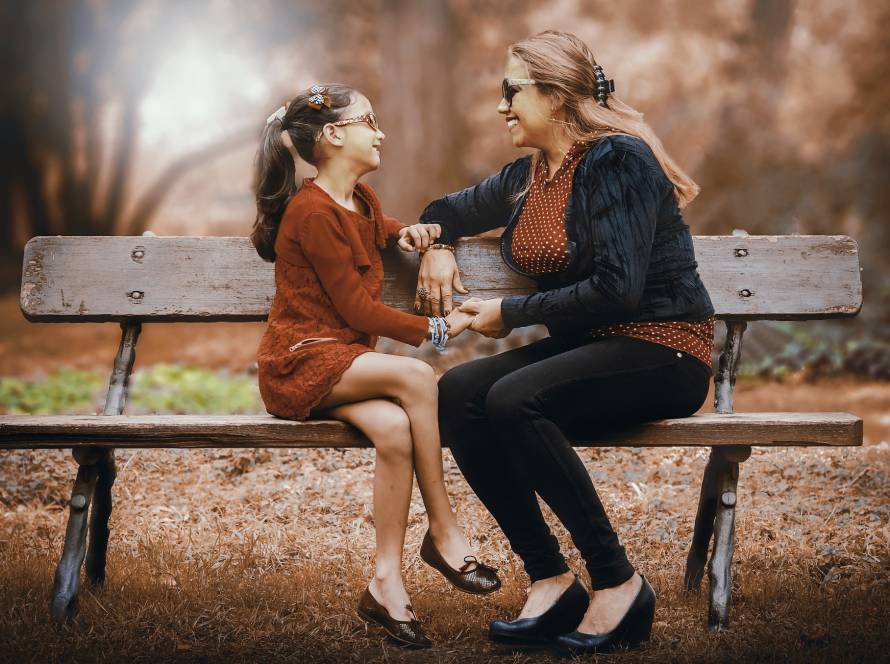We have to start somewhere.
Generational discipleship doesn’t just happen. No matter what structures or programs we have in place, no matter how stunning our stage presence or powerful our preaching, no matter how nice our facility or how big or small our building, without the connections that lead to meaningful relationships, we will miss out on the greatest opportunity for lifelong disciples within our faith communities.

In the Connect Generations case study in 2022, one interesting insight into how connection plays out in the participating churches emerged.
For starters, in the ten churches that were surveyed, there were ten different understandings of connection, relationship, discipleship, and mentorship. Definitions of these words were intentionally not given to the participants. The goal was to see if generational discipleship, the passing of faith from one generational to another, was being observed by the participant without input or bias from the researcher.
In the end, only two participants differentiated between connection (a chance or space to interact), a relationship (something that moved beyond the greeting at church), and discipleship/mentorship (a passing on of faith or life lesson from one person to another). Only one participant could articulate a path from connection to relationship to discipleship/mentorship where the passing of faith was the primary intent.

In general, mentorship was primarily seen as simply passing a skill or task to another such as how to run the sound board or cook the meal for the yard sale or cut the lawn or teaching someone to take over a vacated role on a committee. Mentorship was only spoken of by one participant in a way that involved any form of spiritual formation or the sharing of personal life lessons.
The ways in which discipleship was understood were equally vague, with all but one referring to a discipleship program or curriculum as the primary context for discipleship. One participant responded to the question on mentorship/discipleship by saying, “We don’t use a lot of religious language… Mentoring is still a thing but not necessarily spiritual or religious.” Another offered their church’s definition of discipleship as simply “embodying faith” but offered no practice tied to the experience of discipleship in their church other than starting a mentoring program in January. Finally, another answered the discipleship/mentorship question by sharing, “Intergenerational relationships are more about hanging out and having fun not intentional discipleship or mentoring.”
Why is this important? Because if we are to take seriously our call to make disciples on all, including the all that shows up in our church each Sunday, we need to know what it is we are doing.
This is what generational discipleship is all about. It’s the passing of our faith from one generation to another. I’ve said it before and I’ll say it again: Our faith doesn’t accidentally get passed on by way of a good book or a great worship song. Our faith is passed from one generation to another. It is passed in relational community.
Discipleship isn’t about downloading information from one person to another. It’s not even about learning more about the Bible or Jesus or our faith. Discipleship will always be about following Jesus and that is done, not as lone rangers, but in the community of believers, the body of Christ, the Church. The final outcome of these times of meaningful connections will be churches and homes that function in unity and community in mentoring and discipling the next generation.
Most of the case study participants participants offered the same context for connection, relationship, and discipleship; in other words, all three things (connection, relationship, discipleship) were seen as the same thing. If these churches are an indication of the state of most Western Protestant US churches, a robust discussion of generational discipleship is needed among both leadership and laity as are more resources that can help churches to understand the progression from connection to relationships to discipleship as a means of spiritual formation and generational discipleship.
And it has to start somewhere. It starts with connection.
That’s why ReFocus is hosting our 50 Churches scholarship campaign this month. We want to give 50 Churches the tools they need to identify and address the barriers that keep generations from connecting and to instead build bridges for generations to create meaningful relationships that lead to lifelong discipleship for all. Connect Generations empowers churches to bridge generational gaps and bring communities together. For more information on how you can join us, see the information below or check out our 50 Churches webpage
Give the Gift of Connection

Join us in raising $5,000 to provide 50 scholarships for churches to complete the Connect Generations Coaching Intensive. This program empowers churches to bridge generational gaps and bring communities together.
By supporting our campaign, you’re not just giving to a cause; you’re giving the gift of unity and stronger communities. Your contribution helps foster Generational Discipleship in churches across the nation. Any generous donor contributing $100 or more during the campaign will receive a free copy of our Family Faith Formation curriculum, Serve Tools. And one donor will win a free Connect Generations Coaching Intensive for their church or faith community!
We invite you to join us in this mission to Connect Generations, transform communities, and foster lasting connections. Donate today!
FREE ONLINE EVENT: REFOCUS ROUNDTABLE DISCUSSION
“Developmentally Appropriate Church“

Often when we talk about including all ages in church, a major concern that gets raised is whether or not it is developmentally appropriate for everyone. This can be especially true when discussing the inclusion of children in the larger worship context. But sometimes this view is based on a narrowly defined area of developmental research and theories while a broader examination of developmental psychology can give us a broader view of what it means for something to be “developmentally appropriate.”
ReFocus is hosting this online roundtable discussion for anyone interested in exploring the idea of developmentally appropriate church, specifically engaging all ages in our worshipping communities, and how research can inform our approaches to intergenerational faith community.
About the Author

Christina Embree is the founder and director of ReFocus Ministry. She holds a masters in ministry focused on Children, Youth, and Family Ministry and a doctorate in spiritual formation with a focus on age segregation and intergenerational ministry. In addition to coaching churches of multiple denominations and traditions all around the globe, Christina serves as the Minister of Generational Discipleship for the Great Lakes Conference of the Brethren in Christ and as a pastor at Plowshares Brethren in Christ in Lexington, Kentucky. She is widely recognized as a speaker and author in the areas of generational discipleship, intergenerational ministry, and family ministry. As the mother of three children, she is familiar with the challenges of faith at home and pastoral ministry. She along with her husband Luke share a love for the church, their community, and the global work of peace and restoration through Jesus.
Interested in having Christina visit your church, speak at your conference, or coach your team? Christina speaks on a wide range of topics related to children, youth, and family ministry with a unique focus on connecting generations for discipleship within your church. Her personalized approach allows you to pinpoint the needs of your community and gain the insight that you are looking for. Whether this is a volunteer team training and pastoral staff meeting or a ministerial conference, her experience and knowledge will help you determine the next step forward in creating lifelong disciples.
Learn more at https://refocusministry.org/speaking-coaching/ and fill our our Speaker Interest Form at https://forms.gle/5Xzs5BE8pfyU2top9 to receive a personalized response.
.


